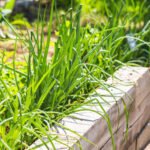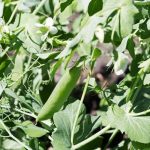Rabbit manure, often referred to as “bunny gold,” is a widely debated topic among gardeners. This natural fertilizer possesses numerous benefits for vegetable gardens, but it also comes with potential risks and pitfalls. Understanding the proper use of rabbit manure is crucial for successful gardening. In this article, we will explore the possibilities and challenges of using rabbit manure as a nutrient source for vegetable gardens.
When properly composted, rabbit manure can be used as an effective and sustainable way to enhance soil fertility in vegetable gardens. The high nutrient content of rabbit manure makes it an ideal natural fertilizer for promoting healthy plant growth and bountiful harvests. But how does rabbit manure benefit vegetable gardens? And what are the best practices for incorporating it into organic gardening? Let’s delve deeper into the world of using rabbit manure in vegetable gardens.
In the following sections, we will explore the nutrition value of rabbit manure for vegetables, learn how to properly compost rabbit manure for vegetable gardens, and uncover potential risks and pitfalls associated with its use. Additionally, we will examine case studies and success stories of using rabbit manure in vegetable gardens, as well as provide tips for incorporating this natural fertilizer into organic vegetable gardening practices.
Whether you are a seasoned gardener or just starting out, understanding the advantages and challenges of utilizing rabbit manure can make all the difference in your vegetable garden’s success.
The Benefits of Using Rabbit Manure in Vegetable Gardens
Rabbit manure is a valuable resource for vegetable gardens, providing a wide range of benefits that contribute to healthy plant growth and high yields. One of the key advantages of using rabbit manure in vegetable gardens is its high nutrient content, which includes essential elements such as nitrogen, phosphorus, and potassium. These nutrients are vital for promoting robust plant growth and enhancing the flavor and nutritional value of fruits and vegetables.
Enhanced Soil Fertility
When rabbit manure is used as a natural fertilizer, it enriches the soil with organic matter, improving its overall fertility and structure. This not only encourages strong root development in vegetable plants but also helps to retain moisture in the soil, reducing the need for frequent watering. Additionally, the beneficial microorganisms present in rabbit manure contribute to a healthy soil ecosystem, supporting the overall well-being of the garden.
Environmentally Friendly Option
Using rabbit manure in vegetable gardens is an environmentally friendly choice that aligns with sustainable gardening practices. By repurposing waste from small livestock operations, gardeners can reduce their reliance on chemical fertilizers and contribute to a more circular agricultural system. This promotes ecological balance and reduces environmental impact while yielding excellent results in vegetable production.
Overall, incorporating rabbit manure into vegetable gardens offers numerous benefits that support both plant health and environmental sustainability. Gardeners can take advantage of this natural fertilizer to enhance soil fertility, promote healthy plant growth, and minimize their ecological footprint while cultivating bountiful harvests of fresh, nutritious vegetables.
Nutrition Value of Rabbit Manure for Vegetables
When it comes to gardening, the nutrition value of the soil is paramount in determining the success of any crop. Rabbit manure, known for its high nutrient content, can be a valuable addition to vegetable gardens. With a higher nitrogen content compared to other types of animal manure, rabbit manure is an excellent source of nutrients that promote healthy plant growth.
Nutrients Found in Rabbit Manure
Rabbit manure is rich in essential nutrients such as nitrogen, phosphorus, and potassium. These three primary nutrients are crucial for promoting strong plant growth, robust root development, and overall plant health. In addition, rabbit manure also contains micronutrients like calcium, magnesium, and zinc, which are essential for the optimal growth and productivity of vegetables.
Benefits for Vegetable Crops
The nutrient composition of rabbit manure makes it an ideal fertilizer for vegetable crops. Nitrogen promotes lush foliage and green leafy growth in vegetables. Phosphorus supports root development and flower/fruit production, while potassium contributes to overall plant health and disease resistance. When applied properly, rabbit manure can significantly enhance the yield and quality of vegetable harvests.
Considerations for Application
It’s important to note that fresh rabbit manure should not be directly applied to vegetable gardens due to its high concentration of ammonia which can harm plants if not properly composted. Instead, rabbit manure should be composted for at least 6 months before application to allow for breakdown of harmful pathogens and ammonia levels.
This ensures that the nutrients are released slowly over time, providing a sustainable source of nourishment for vegetable crops without the risk of burning or damaging the plants.
How to Properly Compost Rabbit Manure for Vegetable Gardens
Rabbit manure is an excellent natural fertilizer that can greatly benefit vegetable gardens. One of the best ways to make use of rabbit manure is by composting it properly. Composting rabbit manure not only helps to break down the material, but also eliminates any potential risks and pitfalls associated with using fresh manure in the garden.
To properly compost rabbit manure for vegetable gardens, follow these steps:
1. Collect the rabbit manure – Gather up all the rabbit droppings from your rabbits’ living area and store them in a large container or designated compost bin.
2. Add carbon-rich materials – Mix in some carbon-rich materials such as straw, hay, or dried leaves to neutralize the high nitrogen content of the manure.
3. Turn and aerate regularly – To speed up the composting process, be sure to turn and aerate the pile regularly to ensure that it decomposes evenly.
Composting rabbit manure not only helps improve soil structure, but also promotes healthy growth in your vegetable garden while reducing odors and potential harm to plants from fresh manure. Properly composted rabbit manure can be a valuable asset to any organic gardening efforts.
Potential Risks and Pitfalls of Using Rabbit Manure in Vegetable Gardens
Rabbit manure is a popular choice for organic gardeners looking for natural fertilizers to improve the health and yield of their vegetable gardens. However, there are some potential risks and pitfalls to consider when using rabbit manure in vegetable gardens. One of the main concerns is the possibility of pathogens and bacteria present in raw rabbit manure. If not properly composted, these pathogens can contaminate the vegetables and pose a health risk to consumers.
Another potential risk of using rabbit manure in vegetable gardens is its high nitrogen content. While this can be beneficial for plants, excessive nitrogen levels can lead to an imbalance in the soil and result in nutrient deficiencies in the plants. Additionally, if not used in moderation, the high levels of nitrogen can also cause damage to plant roots and hinder their growth.
Furthermore, using rabbit manure that has been contaminated with pesticides or other chemicals can have detrimental effects on the vegetables and soil quality. It is important to ensure that the rabbit manure comes from a reliable and organic source to avoid introducing harmful substances into the garden. By being aware of these risks and taking proper precautions, gardeners can effectively utilize rabbit manure as a beneficial fertilizer for their vegetable gardens while minimizing potential drawbacks.
Best Practices for Applying Rabbit Manure in Vegetable Gardens
Rabbit manure is a fantastic source of nutrients for vegetable gardens, and when applied properly, it can greatly benefit the health and yield of your crops. Here are some best practices for applying rabbit manure in vegetable gardens:
- Composting: Before using rabbit manure in your vegetable garden, it’s important to compost it properly to ensure that any potential pathogens or parasites are eliminated. Composting also helps break down the manure, making its nutrients more easily accessible to plants.
- Proper Application: When applying rabbit manure to your vegetable garden, it’s crucial to do so in moderation. Excessive use of manure can lead to an imbalance of nutrients in the soil, which may negatively affect plant growth. A general guideline is to apply no more than 1/4 inch of composted rabbit manure around the base of plants.
- Timing: It’s best to apply rabbit manure to your vegetable garden in the fall or early spring. This gives the composted manure enough time to break down and release its nutrients before you start planting your crops.
By following these best practices, you can effectively harness the benefits of rabbit manure for your vegetable garden while minimizing the potential risks associated with its use. Remember that while rabbit manure can be a valuable fertilizer, proper application is key to achieving optimal results without harming your plants or soil.
Case Studies and Success Stories of Using Rabbit Manure in Vegetable Gardens
Rabbit manure has long been considered a valuable resource for gardeners due to its high nutrient content and benefits for soil health. Many vegetable gardeners have found success in using rabbit manure as a natural fertilizer, with some even incorporating it into their organic gardening practices. Several case studies and success stories serve as evidence of the positive impact rabbit manure can have on vegetable gardens.
One example of successful rabbit manure use in vegetable gardens comes from a small-scale urban farm in California. The farm implemented a composting system that utilized rabbit manure as a primary source of nutrients for their vegetable crops.
By properly composting the manure before application, the farm saw increased yields and healthier plants in their vegetable garden. This case study highlights the importance of following proper composting techniques when using rabbit manure to ensure its effectiveness and prevent any potential risks.
Another success story comes from a family-owned organic vegetable farm in Oregon. The farm had struggled with maintaining soil fertility and plant health until they began incorporating rabbit manure into their gardening practices. After integrating rabbit manure into their compost and soil amendment routines, the farm experienced improved soil structure, increased water retention, and overall better crop quality. This example showcases how properly applying rabbit manure can lead to significant improvements in both soil health and vegetable production.
A study conducted by a university agricultural extension program also demonstrated the positive impact of using rabbit manure in vegetable gardens. The researchers compared plots of vegetables grown with traditional synthetic fertilizers versus those grown with composted rabbit manure. The results showed that the vegetables fertilized with rabbit manure had higher nutrient levels, better pest resistance, and improved overall flavor. These findings support the notion that rabbit manure can be a beneficial alternative to conventional fertilizers for vegetable gardening.
| Success Story | Location |
|---|---|
| Small-scale urban farm | California |
| Family-owned organic farm | Oregon |
| University agricultural study | N/A |
Tips for Incorporating Rabbit Manure Into Organic Vegetable Gardening
Rabbit manure is a valuable resource for organic vegetable gardening. When properly composted and applied, it can provide a rich source of nutrients for plants and help improve soil structure. Here are some tips for effectively incorporating rabbit manure into your organic vegetable garden.
First, it’s important to properly compost rabbit manure before using it in the garden. This helps to break down any potential pathogens or harmful bacteria, making the manure safe for use on edible crops. Composting also allows the manure to decompose and release its nutrients slowly, providing long-term benefits to the soil and plants.
When incorporating rabbit manure into your organic vegetable gardening practices, be mindful of the nitrogen content. Rabbit manure is high in nitrogen, which can be beneficial for leafy greens and other fast-growing vegetables. However, excessive nitrogen can lead to lush foliage at the expense of fruit and flower production in certain crops. To avoid this, it’s important to balance the use of rabbit manure with other organic fertilizers or amendments.
In addition to composting rabbit manure, consider using it as a top dressing or adding it to your compost pile. By layering it with other organic materials such as leaves, straw, and kitchen scraps, you can create nutrient-rich compost that will benefit your vegetable garden. Properly incorporating rabbit manure into your organic gardening practices can lead to healthier plants and higher yields without relying on synthetic fertilizers.
Conclusion
In conclusion, rabbit manure can indeed be used as an effective and beneficial addition to vegetable gardens. Its high nutrient content, including nitrogen, phosphorus, and potassium, makes it a valuable organic fertilizer for promoting plant growth and improving soil quality. The benefits of using rabbit manure in vegetable gardens are numerous, including increased soil fertility, improved plant health, and a more bountiful harvest of vegetables.
Proper composting of rabbit manure is essential to ensure its safety and effectiveness in vegetable gardens. This process helps to break down the manure and eliminate any harmful pathogens or potential risks that may be associated with fresh manure application. Additionally, incorporating rabbit manure into organic vegetable gardening practices aligns with sustainable and environmentally friendly approaches to cultivation.
While there are potential risks and pitfalls associated with using rabbit manure in vegetable gardens, such as the risk of introducing harmful bacteria or improper application leading to nutrient imbalance, following best practices can mitigate these concerns. By considering the nutritional value of rabbit manure for vegetables, composting techniques, case studies of success stories, and tips for incorporation into organic gardening, gardeners can confidently utilize rabbit manure to optimize their vegetable yields while maintaining healthy soil ecosystems.
Frequently Asked Questions
Can I Put Rabbit Manure Directly on My Vegetable Garden?
Rabbit manure can be an excellent fertilizer for your vegetable garden, as it is rich in nutrients like nitrogen, phosphorus, and potassium. However, it is important to note that fresh rabbit manure is very high in nitrogen and can “burn” your plants if applied directly.
It’s recommended to compost the rabbit manure first or let it age for a few months before using it in the garden.
Do Tomato Plants Like Rabbit Manure?
Tomato plants can benefit from rabbit manure when used as a fertilizer. The nutrients in rabbit manure can help promote healthy growth and strong fruit production in tomato plants. Just be sure to follow the guidelines for applying aged or composted rabbit manure to avoid damaging the plants.
Does Rabbit Manure Need to Be Aged?
Yes, rabbit manure does need to be aged or composted before use. Fresh rabbit manure is too potent and high in nitrogen, which can harm plants if applied directly. Allowing the manure to age for several months or composting it will not only reduce its strength but also make it safer and more beneficial for your garden soil and plants.

If you’re looking to get into vegetable gardening, or are just looking for some tips on how to make your current garden better, then you’ve come to the right place! My name is Ethel and I have been gardening for years. In this blog, I’m going to share with you some of my best tips on how to create a successful vegetable garden.





